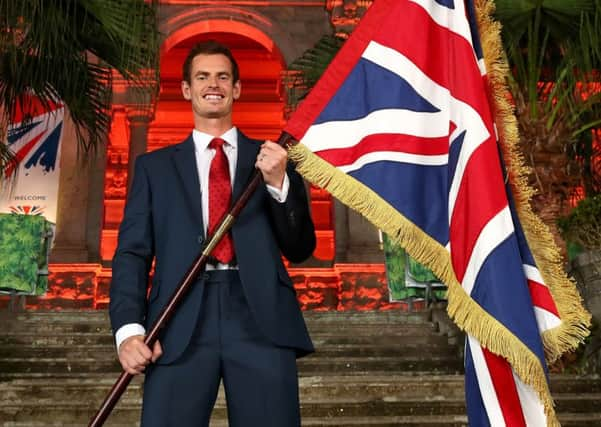David Goldbatt: Glint of Olympic gold among the squalor


RECALLING the impact of the opening ceremony of the 1976 Montreal Olympics, Bruce Kidd, a Canadian athlete, wrote: “In such moments you completely forgo the knowledge that an entire continent felt it had to depart from these Games, that the island of Montreal was an armed camp, or that the whole celebration cost about ten times what it should have. I know I did. For two weeks all the contradictions seemed to stand still.”
Rio 2016 has at least escaped the problem of boycotts, but in every other regard it faces all the same problems Montreal did and a great deal more. Indeed, the hyper militarisation of public space and ludicrous overspends driven by grandeur, incompetence and corruption Kidd noted have become the Olympic norm.
Advertisement
Hide AdAdvertisement
Hide AdTo this, Brazil has added its own unique constellation of problems: a savage economic recession, a polity engulfed by constitutional crisis and the nation’s most explosive corruption scandal ever.
Rio itself has added the bankruptcy of the state government, a widespread deterioration in the city’s public services where wages have not been paid for months, and a sharp rise in violent crime and homicides as its much criticised pacification programme in the city’s favelas comes unstuck.
In just the last week, every advance – opening the Olympic village, completing the Metro to the Olympic park – has been met by a reverse. Athletes and journalists have discovered what most locals have to live with all the time; shoddy finishing, shoddy landlords and the ever present threat of theft. The metro is operational, but the pontoon built for the sailing events has collapsed, and the imposition of special Olympic lanes has reduced the rest of the city to a gridlock so bad the governor has announced the first of what is expected to be a significant number of public holidays to ease the madness on the roads.
To the already appalling state of the city’s water and sewage systems – showcased by the filthy and fecal virus-ridden waters of Guanabara Bay, the venue for the sailing – it has emerged that Rio has the worst air quality of any Olympic host but for Beijing, and that the government has been systematically under-reporting this.
Advertisement
Hide AdAdvertisement
Hide AdVisitors will be temporary inconvenienced, but estimates suggest that this toxic fug will take more lives than even homicides (last year there were over 1,500 in Rio). Private security companies, hired by local businesses, have been sweeping the homeless and undesirable from the Flamengo district, and a huge police action in the Complexo de Alemao, a mile from the Maracana stadium site of the closing ceremony, left at least three dead. Meantime the final stages of the torch relay were subject to a daily series of protests actions from disgruntled locals and anti-Olympic activists.
The Brazilian government at all levels – federal, state and city – not to mention its developers and construction conglomerates must, of course, take their share of their blame for all of this. However, it would be iniquitous to single them out alone. Other hosts have their own roll call of disasters and injustices. Atlanta was more ruthless in its social cleansing. Athens was even more last minute and profligate. Sochi saw more money paid out in kickbacks. Seoul and Beijing displaced many more residents.
That said, Rio is giving them all a run for their money. More significantly it was the IOC that has framed and nurtured the nature of contemporary Olympic gigantism, and it was the IOC that chose Rio to host the Games.
And then there are us. We, the global public, who since the advent of live colour television broadcasts in Mexico City in 1968 have watched in ever greater numbers, consumed the games in ever more diverse forms, and thus underwritten the investment in the Olympics of media networks, global corporations and national governments.
Advertisement
Hide AdAdvertisement
Hide AdHow could we not? The Olympics, which promise a cosmopolitan festival of humanity expressed through the extraordinary narratives and performances of competitive sport, has proved compelling, at times spellbinding, not least in London four years ago.
Rio will, despite everything, be an admirable host, effectively staging this 17-day global television spectacular.
Is it possible to watch this and for the contradictions to disappear? We know that all the economic and environmental arguments for staging the Games are bogus. We know they don’t actually encourage sporting participation. Can we say that the beauty and the glory of the Games are worth the evictions, the mendacity, the wasted opportunities, the rank injustices? If it ever was possible to make such a call, then the greatest legacy of Rio may be that it has become impossible to do so now.
Rio is a final notice for the IOC and its current Olympic model – a notion borne out by the rapidly dwindling number of cities prepared to actually bid for the Games (only three for the 2020 summer Games, just two for the 2022 Winter Olympics).
Advertisement
Hide AdAdvertisement
Hide AdThere is no need for us to guilty avert our eyes. In fact the situation demands, if the possibilities and pleasures of sport matter to us, to look even harder, to think more critically, and while we thrill at the best of sport, to also remember more about the economic and political forces that have made the Olympics and why they must be challenged.
David Goldbatt is author of The Games: A Global History of the Olympics published by Pan Macmillan, price £20.